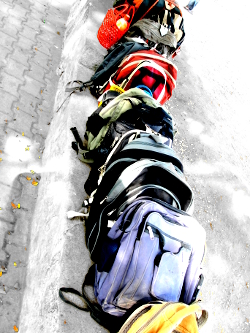Global stats show gaps

Australian Year 4 students have achieved their highest performance in international maths and science evaluations, overcoming pandemic-related disruptions to their early education.
The results, announced in the latest Trends in International Mathematics and Science Study (TIMSS), reveal improvements across several measures for Year 4 students. However, gender disparities in performance remain a concern.
The TIMSS assessment, conducted every four years, evaluates the skills of students in Years 4 and 8 in around 50 countries.
In the latest stats, Australian Year 4 students ranked equal fifth in science and equal 15th in maths in 2023.
Both positions mark significant advancements from 2019 when the same cohort ranked equal ninth and equal 23rd in these subjects.
These results reflect an overall improvement in Year 4 performance, with Australian students consistently scoring above the international average.
Lead report author Nicole Wernert praised the efforts of students, teachers, and parents during challenging times.
“These are really positive results for our Year 4 students, particularly since their first years of school were disrupted by COVID-19,” she said.
Despite these gains, results for Year 8 students remained relatively stable compared to previous cycles.
Year 8 students placed equal eighth in science and equal ninth in maths, with both rankings representing slight shifts from 2019 results. Singapore continued to dominate across all categories and year levels.
The report highlighted a significant gender gap, particularly in Year 4 maths, where Australian boys outperformed girls at a rate matched only by France.
Australia also ranked poorly on gender gap measures in science.
Ms Wernert described the findings as “interesting and disappointing”, noting it was the first time a consistent gender gap had been observed across all subjects and year levels in TIMSS.
The Australian Council for Educational Research (ACER), which oversees TIMSS in Australia, noted that closing the gender gap in STEM remains a critical issue.
The TIMSS report also shed light on persistent equity gaps in Australia, including those affecting First Nations students and those from regional, remote, and low socioeconomic areas.
Federal Education Minister Jason Clare acknowledged these challenges, calling for increased investment in public schools and targeted reforms to ensure fairness in educational outcomes.
“These results highlight that we have a good education system in this country, but it can be better and fairer,” Clare said.
“That is why we want to invest more money in our public schools and tie that funding to practical reforms that will help students catch up, keep up, and finish school.”
The 2023 assessment involved 5,470 Year 4 students from 283 schools and 8,442 Year 8 students from 276 schools nationwide.
Globally, more than 650,000 students participated in the assessments, managed by the International Association for the Evaluation of Educational Achievement (IEA).








 Print
Print